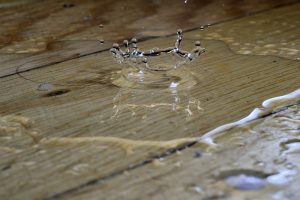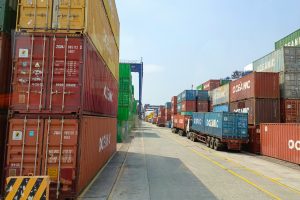Since the advent of the second Trump Administration, tariffs have been a source of confusion. At this point, the average tariff is 15.6%. The uncertainty surrounding tariffs is going to continue into 2026, which will impact the costs of routine and capital maintenance for multifamily buildings, including residential cooperative and condominium buildings.
Absent action from Congress, the courts will be adjudicating various tariffs under the Trade Expansion Act of 1962 (Section 232), the Trade Act of 1974 (Section 301), the International Emergency Economic Powers Act (IEEPA) and the Reciprocal Trade Agreements Act of 1934.
The most problematic and highest tariff s currently in effect are the IEEPA tariffs imposed on April 2, 2025. Two courts, including the United States Court of International Trade (CIT), have ruled that the IEEPA tariff s are unlawful as the president lacks the authority to impose tariff s under the IEEPA.
The imposition of tariffs is not one of the powers granted to the president under the IEEPA. Those rulings are pending review by the United States Courts of Appeals for the Federal Circuit and the District of Columbia Circuit. The Federal Circuit ordered an expedited briefing and scheduled oral argument, en banc, for July 31, 2025.
The Federal Circuit will likely affirm the CIT decision. It is also likely the Federal Circuit will stay its ruling to permit the government to appeal to the Supreme Court. At this writing, whether the Supreme Court will grant certiorari on the IEEPA cases is unclear.
President Trump has other tariff options. Section 232 is only available for national security purposes. It is not a general-purpose tariff statute. Section 301 is only available to counter unfair trade practices by other nations. We should expect Section 232 tariff s to be challenged as being too broadly applied, as well as Section 301 tariffs that are being challenged on procedural grounds.
Besides the Section 301 tariffs imposed on China, which are based on China’s economic protectionism against the United States, many of these tariffs are not likely to survive judicial scrutiny. These cases will take at least a year to wind through the CIT and the Federal Circuit.
To the extent that tariff s are ultimately invalidated, the money will not be returned to consumers but will be returned to the importer. The importers may have other tax implications from the return of the funds and, in any event, may have no meaningful ability to return the tariff payments to customers if no special arrangement is made in advance. Also, keeping the tariff refunds increases the importers’ profits.
While the courts sort out the tariff s, prices for goods containing aluminum, steel or both will increase. For multifamily housing, this is not a good development. It means that most household appliances, such as vacuum cleaners, dishwashers, washing machines and stoves, will increase in price. Additionally, windows with steel or aluminum frames and mullions will increase in price.
Likewise, steam and water valves, electric panels and PTAC units will be more expensive. Construction materials such as drywall studs, brick ties, electric conduit, plumbing pipes and valves, HVAC units and boilers will be more costly.
Delaying such purchases and related maintenance projects for a year or two would be wise. It may not always be possible, but capital projects should be evaluated against the tariffs, since these payments will likely be blocked in part in 2026.
The other force driving up construction costs is a developing labor shortage. Prior to the current push to deport undocumented workers, up to one-fifth of the construction labor force was undocumented. With pressure on undocumented workers, fewer may be available to work, meaning that either labor rates increase to attract U.S. workers or jobs slow down.
Either way, the cost of construction will increase. Costs will not stabilize until the labor force and tariff issues are settled.
This column presents a general discussion. This column does not provide legal advice. Please consult your attorney for specific legal advice.
Carol A. Sigmond
Partner
Greenspoon Marder LLP
1345 Avenue of the Americas
Suite 2200
New York, NY 10105
carol.sigmond@gmlaw.com
(212)524-5074






















